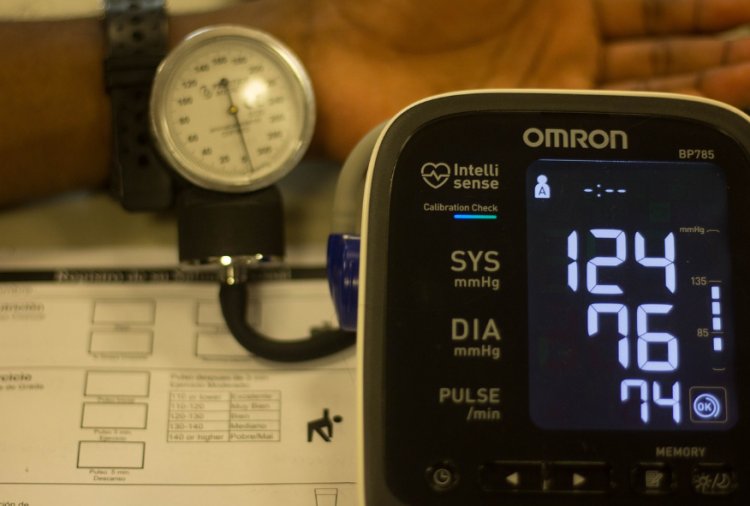Understanding Blood Pressure: Causes, Symptoms, and Tips for Management
Blood pressure, often referred to as hypertension, is a common medical condition characterized by elevated pressure in the arteries. It is a significant risk factor for cardiovascular disease, stroke, and other health complications. In this comprehensive guide, we will explore the causes, symptoms, and effective strategies for managing blood pressure to promote overall health and well-being.

What is Blood Pressure?
Blood pressure is the force exerted by the blood against the walls of the arteries as it is pumped by the heart. It is measured in millimeters of mercury (mmHg) and consists of two numbers:
Systolic Pressure: The top number represents the pressure in the arteries when the heart contracts and pumps blood out during a heartbeat.
Diastolic Pressure: The bottom number represents the pressure in the arteries when the heart is at rest between beats.
Normal blood pressure is typically considered to be around 120/80 mmHg. However, blood pressure levels can vary depending on factors such as age, gender, and overall health.
Causes of High Blood Pressure
Several factors can contribute to high blood pressure, including:
- Genetics and family history
- Poor diet high in salt, saturated fats, and processed foods
- Lack of physical activity
- Obesity or being overweight
- Smoking and tobacco use
- Excessive alcohol consumption
- Chronic stress and anxiety
- Underlying medical conditions such as diabetes, kidney disease, or thyroid disorders
- Symptoms of High Blood Pressure
High blood pressure is often referred to as a "silent killer" because it typically does not cause noticeable symptoms until it reaches severe levels or leads to complications such as heart attack or stroke. However, some individuals may experience:
- Headaches
- Dizziness or lightheadedness
- Blurred vision
- Shortness of breath
- Chest pain
- Fatigue or weakness
Tips for Managing Blood Pressure
Maintain a Healthy Diet: Consume a balanced diet rich in fruits, vegetables, whole grains, lean proteins, and healthy fats. Limit sodium intake, processed foods, and sugary beverages.
Engage in Regular Physical Activity: Aim for at least 30 minutes of moderate-intensity exercise most days of the week, such as brisk walking, swimming, or cycling.
Achieve and Maintain a Healthy Weight: Losing excess weight can help lower blood pressure and reduce the risk of cardiovascular disease.
Limit Alcohol and Caffeine: Drink alcohol in moderation and avoid excessive caffeine consumption, which can raise blood pressure.
Quit Smoking: Smoking can significantly increase the risk of high blood pressure and other cardiovascular diseases. Seek support and resources to quit smoking if needed.
Manage Stress: Practice relaxation techniques such as deep breathing, meditation, yoga, or tai chi to reduce stress and promote overall well-being.
Monitor Blood Pressure Regularly: Keep track of your blood pressure at home using a reliable blood pressure monitor and consult with your healthcare provider if readings are consistently high.
Follow Medical Recommendations: Take prescribed medications as directed by your healthcare provider and attend regular check-ups to monitor blood pressure and overall health.
By incorporating these lifestyle changes and strategies into your daily routine, you can effectively manage blood pressure and reduce the risk of complications associated with hypertension.
Coupoly offers a complimentary Medical Concierge Service, connecting you with leading doctors and clinics.
Reach out to us today.
What's Your Reaction?





















